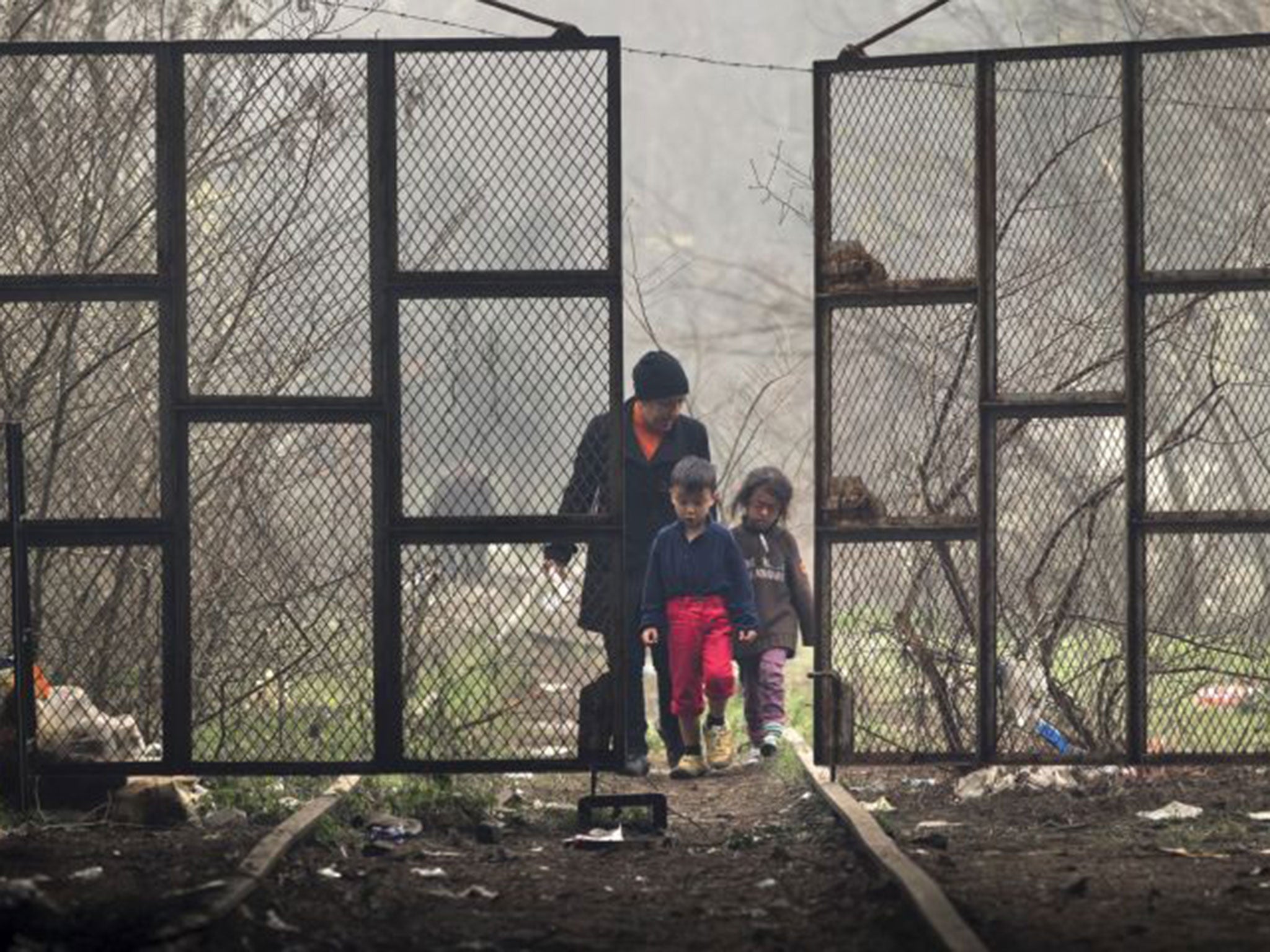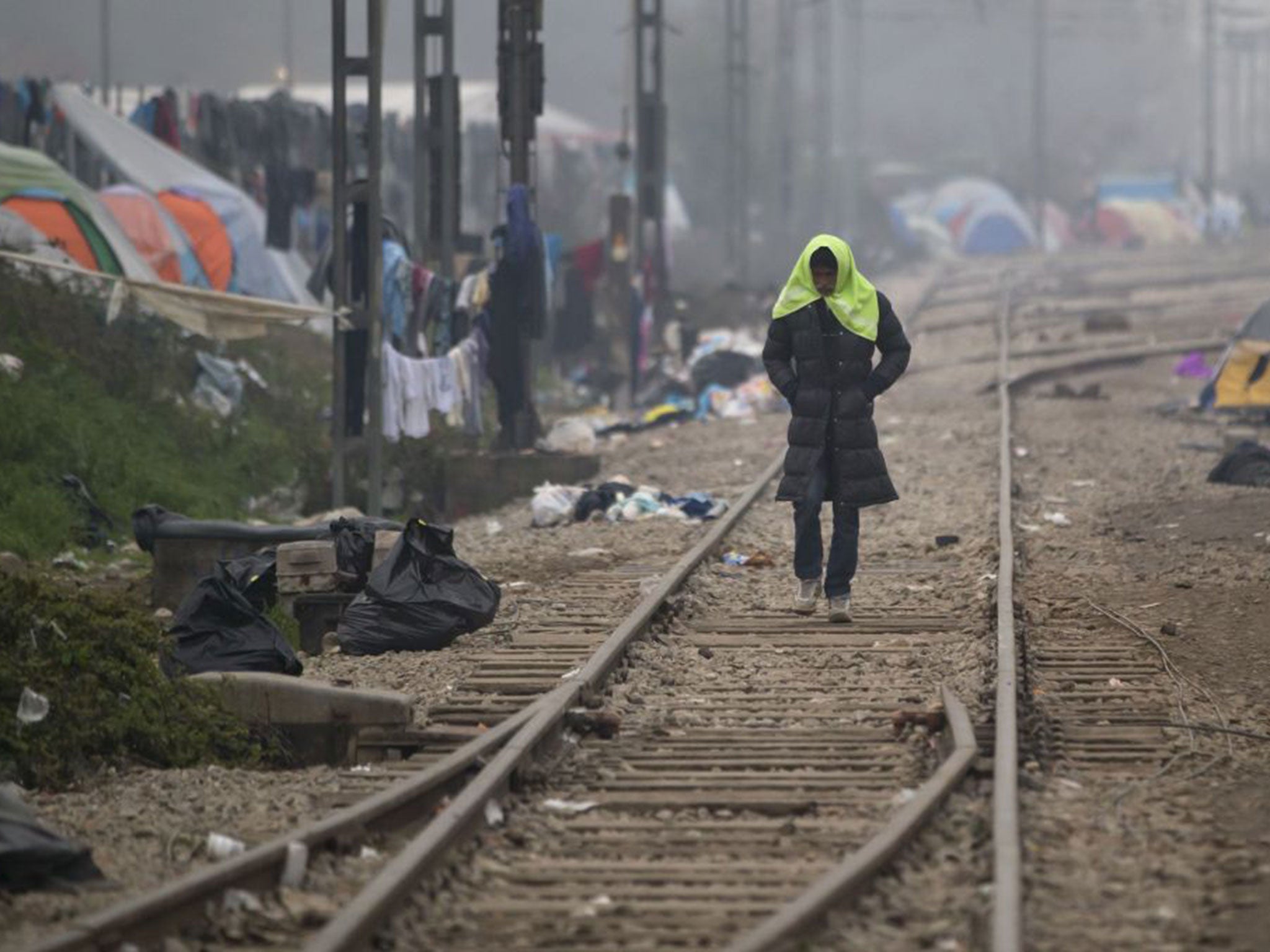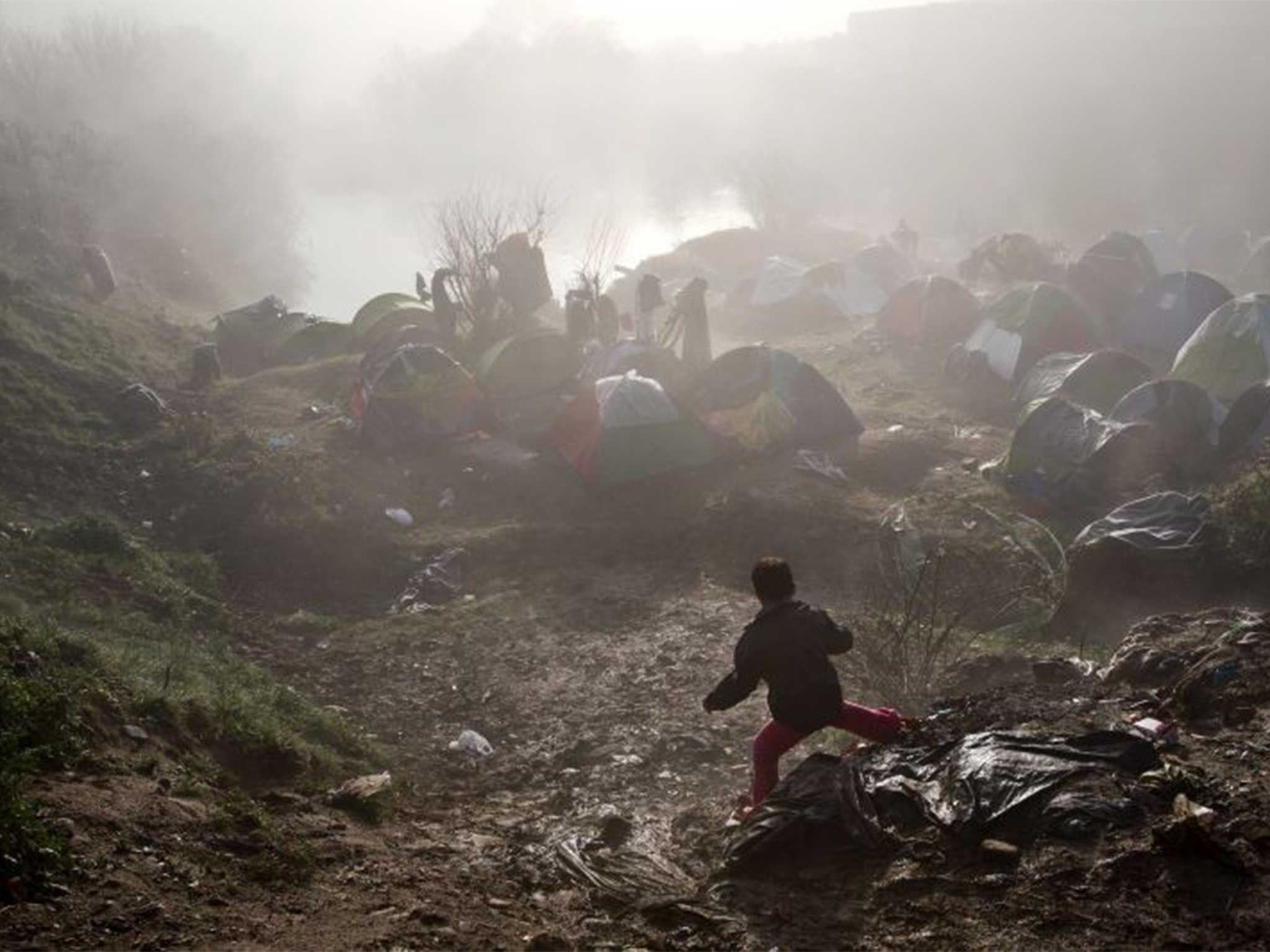Greek refugee camp is ‘as bad as a Nazi concentration camp', says minister
'I do not hesitate to say that this is a modern-day Dachau', says Panagiotis Kouroublis

Your support helps us to tell the story
From reproductive rights to climate change to Big Tech, The Independent is on the ground when the story is developing. Whether it's investigating the financials of Elon Musk's pro-Trump PAC or producing our latest documentary, 'The A Word', which shines a light on the American women fighting for reproductive rights, we know how important it is to parse out the facts from the messaging.
At such a critical moment in US history, we need reporters on the ground. Your donation allows us to keep sending journalists to speak to both sides of the story.
The Independent is trusted by Americans across the entire political spectrum. And unlike many other quality news outlets, we choose not to lock Americans out of our reporting and analysis with paywalls. We believe quality journalism should be available to everyone, paid for by those who can afford it.
Your support makes all the difference.Refugees in Europe are living in conditions comparable to Nazi concentration camps, a senior Greek politician has said.
The Greek interior minister, Panagiotis Kouroublis was visiting the Idomeni camp on Greece's border with Macedonia.
Despite being planned for just 2,500 people, the camp hosts around 12,000 refugees - many from Syria and Iraq - in wet, cold and muddy conditions.
"I do not hesitate to say that this is a modern-day Dachau, a result of the logic of closed borders," said Mr Kouroublis. "Whoever comes here takes several blows to the stomach."

Idomeni is regarded as one of the worst refugee camps on the European migrant trail, which has increased in size following Macedonia's decision to close its border.
Last week, in an example of the desperate situation faced by refugees in the camp, a photo emerged of a baby being washed by its parents in a puddle.
Mr Kouroublis is not the only Greek official to have spoken out against conditions in the camp.
Dimitris Avramopoulos, Commissioner for Migration, Home Affairs and Citizenship at the EU Commission, visited the camp on Tuesday.

“The situation here is tragic,” he said. “It doesn’t honour the civilised word, it doesn’t honour Europe.
He also criticised the closing of the border, saying: "All our values are in danger today, and you can see it here in Idomeni.
"I believe that by building fences, by deploying barbed wire, is not the solution.
"We have to work together. Our target is to be in a position to relocate 6000 people per week."
Living conditions – mainly tents in swathes of mud – are extremely poor in the camp.
Health workers have been warning of an imminent health crisis, as they deal with numerous diseases and a myriad mental health issues among the camp’s inhabitants.
Despoina Fillipidaki, a logistician for the Red Cross, said: "We have found women in tents writhing in pain as a result of [intrauterine] foetal deaths," the Guardian reported.
"My biggest fear is that soon people will start to die. And what was their crime?
"All they want is a better life, to escape war, to escape poverty. And what do they get? Greece of [Nazi] occupation. These are scenes from another century, another time."
The United Nations has raised concern about shortages of food, shelter, water and sanitation in the tent city, while Save the Children condemned the “fetid” conditions.
More than 46,000 refugees and asylum seekers are believed to be trapped in Greece after Austria and a series of Balkan countries stopped letting migrants pass through.
European Union leaders are currently holding a summit in Brussels aiming to strike a deal that could see those attempting to cross the Aegean Sea to Greece returned to Turkey.
In exchange, an equal number of Syrian refugees would be relocated safely directly from Turkish camps to Europe, while the country is also pushing for concessions to advance its accession to the EU.
Recep Tayyip Erdogan, the Turkish President, has dismissed growing criticism of a military crackdown on south-eastern parts of Turkey and restrictions of press and civil freedoms that have seen dozens of academics, journalists and lawyers arrested in recent days.
He claimed European leaders were "dancing in a minefield" and supporting terrorist groups, apparently referring to the banned Kurdistan Workers’ Party (PKK).
"At a time when Turkey is hosting three million, those who are unable to find space for a handful of refugees, who in the middle of Europe keep these innocents in shameful conditions, must first to look at themselves," Mr Erdogan said in a speech broadcast on television.
On Wednesday he said that freedom and democracy have “absolutely no value” in Turkey in the wake of several bombings and other attacks, having previously called for MPs, activists and journalists to be classified as “terrorists”.
European leaders have been accused of failing to censure Turkey over alleged human rights abuses as efforts continue to secure the deal on refugees.
Human Rights Watch condemned the situation as a “new low” and said the proposed conditions put the “very principle of international protection for those fleeing war and persecution at stake”.
The plan has also been heavily criticised for singling out Syrian refugees, who make up roughly 40 per cent of arrivals in Europe, over Iraqis, Afghans and other groups needing protection.
An agreement could be reached at a summit in Brussels today, where the German Chancellor Angela Merkel, and Turkish Prime Minister Ahmet Davutoglu were continuing negotiations.
Additional reporting by AP